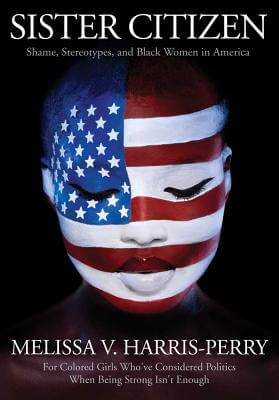Book Review: Sister Citizen: Shame, Stereotypes, And Black Women In America
by Melissa V. Harris-Perry
List Price: $28.00Yale University Press (Sep 20, 2011)
Nonfiction, Hardcover, 392 pages
More Info ▶
Book Reviewed by Kam Williams
"This book is concerned with understanding the emotional realities of black women’s lives in order to answer a political, not a personal, question: What does it mean to be a black woman and an American citizen?
…The particular histories of slavery, Jim Crow, urban segregation, racism, and patriarchy that are woven into the fabric of American politics have created a specific citizenship imperative for African-American women—a role and image to which they are expected to conform.
We can call this image the strong black woman… The strong black woman myth is a misrecognition of African-American women. But it creates specific expectations for their behavior. "
— Excerpted from the Introduction (pgs. 20-21)
What is it like to be a black woman in America? That is the basic
question explored by Professor Melissa Harris-Perry in her fascinating new
book, Sister Citizen. According to the author, this society has historically
exerted considerable pressure on black females to fit into one of a handful
of stereotypes, primarily, the Mammy, the Matriarch or the Jezebel.
Professor Perry points out how the propagation of these harmful myths hastemp served the mainstream culture well. For instance, the Mammy suggests that it is almost second nature for black females to feel a maternal instinct towards Caucasian babies.
As for the source of the Jezebel, black women had no control over their own bodies during slavery given that they were being auctioned off and bred to maximize profits. Nonetheless, it was in the interest of plantation owners to propagate the lie that sisters were sluts inclined to mate indiscriminately.
Sadly, that notion has persisted to this day, which is why so many African-American women’s rape allegations aren’t taken seriously, like that of the NYC hotel maid who recently leveled just such a claim against a well-connected guest from France. Despite the existence of DNA evidence, the charges were dropped, thereby leaving the accuser shamed by the insinuation that the contact must have been consensual.
The author might argue that the stigma of the black female as loose played a role in the case’s disposition without even a trial. For as she points out here ever so succinctly, "White men’s right of access to black women’s bodies was an assumption supported both by their history as legal property and by the myth of their sexual promiscuity," and "Emancipation did not end the social and political usefulness of this stereotype."
A feminist manifesto endeavoring to free sisters forever from the cruel and very limiting ways in which they continue to be pigeonholed.

